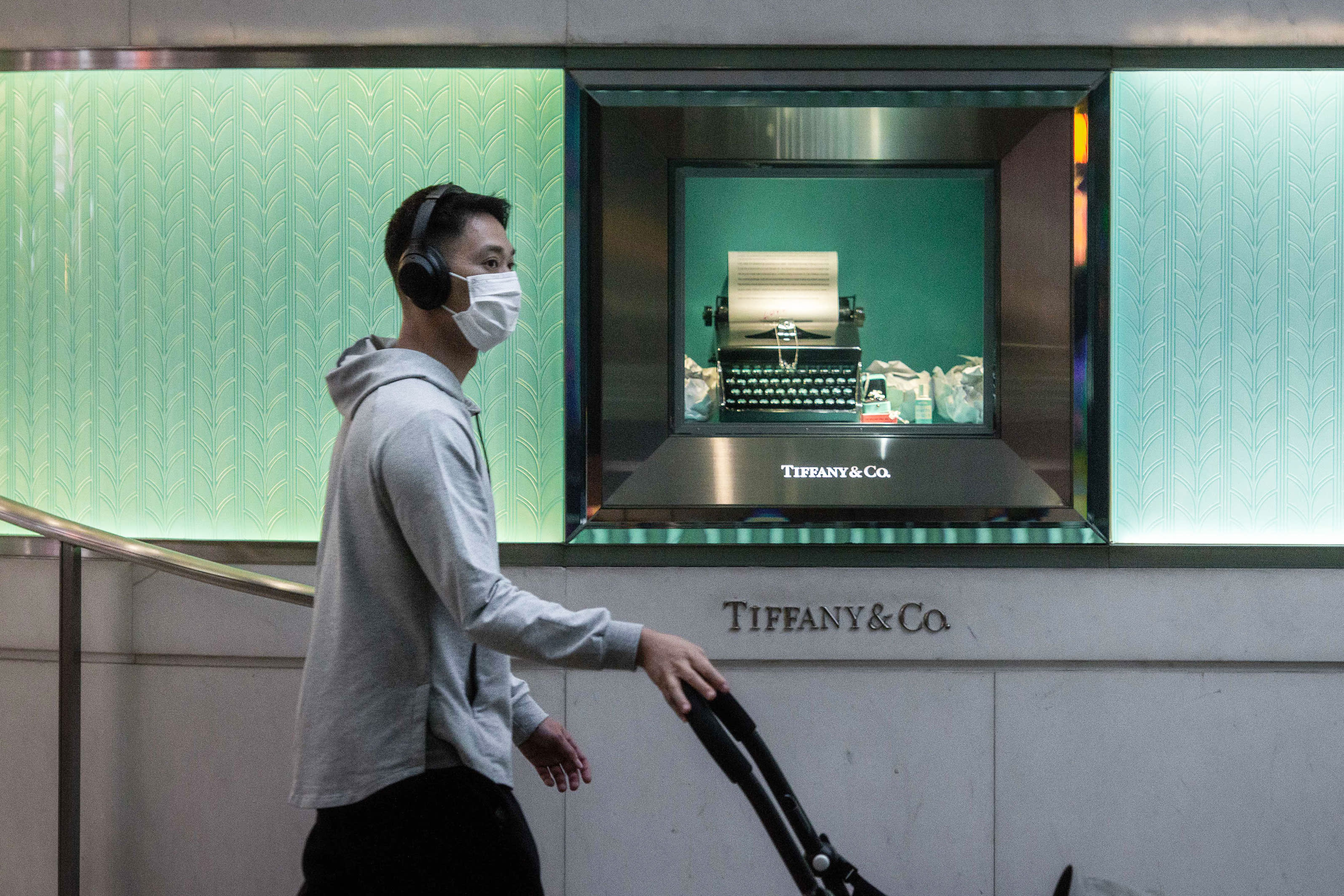A pedestrian wears a face mask while pushing a stroller past the Tiffany & Co. luxury goods store at Times Square in the Causeway Bay district of Hong Kong, China, on Thursday, Feb. 6, 2020.
Bloomberg
If the coronavirus spreads in the U.S., that could mean really bad news for U.S. mall owners, according to a survey taken this week.
The survey by Coresight Research found that 58% of people say they are likely to avoid public areas such as shopping centers and entertainment venues if the virus’ outbreak worsens in the United States. In the poll taken Tuesday and Wednesday, the group surveyed 1,934 U.S. consumers 18 and older.
Notably, the survey was taken before California said it was monitoring 8,400 people for COVID-19. That admission came after U.S. health officials confirmed Wednesday evening the first possible, community transmission of the coronavirus in a Solano County resident.
Roughly 27.5% of respondents said they were already beginning to cut back visits to public areas, Coresight’s survey said. Data suggests malls “will be hit hard,” it said.
“Among those likely to change habits if the outbreak worsens, around three-quarters expect to avoid shopping centers [and] malls — making this the most-avoided type of location,” Coresight founder Deborah Weinswig said. “Shoppers say they will continue to avoid malls more than shops in general.”
Over four in 10 respondents said they were already avoiding or limiting visits to malls, Coresight found.
Beyond malls, which have already been fighting falling foot traffic, the survey found consumers will likely begin to avoid restaurants, movie theaters, sporting events and other entertainment venues. That could have a detrimental impact to those businesses’ sales. Especially when they are not able to try to make up for business online.
Meantime, it is the older consumers who appear to be more likely to avoid venturing out to shop, if the coronavirus spreads further in the U.S.
For example, nearly nine in 10 of those people surveyed by Coresight who are over 60 years old said they are likely to avoid public places and expect to cut mall visits, should the outbreak worsen.
China, where the virus originated, has already seen a similar situation play out. Stores ranging from Lululemon to Louis Vouitton have gone dark. Malls are empty. Streets are being described as ghost towns.
Americans’ wallets could be hit by the virus, analysts say, which could end up slowing overall consumer spending. People would pivot to buying necessities and medical supplies, as has been the case in China. And consumer spending makes up about 70% of the U.S. economy.
Retail stocks including Macy’s, Ralph Lauren, Coach owner Tapestry, Under Armour and Gap have taken a beating this week. U.S. stocks had lost roughly $2 trillion in value, in a week, through Thursday morning. The Dow is having its worst week since 2008.
A spokeswoman for the International Council of Shopping Centers, which includes all the major U.S. mall and shopping center owners, told CNBC in an emailed statement: “At this time ISCS, as well as our members, are following the guidance of the CDC and will implement changes as recommended.”
A spokeswoman for U.S. mall owner CBL told CNBC: “We are monitoring the situation very closely and working with the service providers at our properties to ensure the use of appropriate cleaning and sanitizing agents as well as to maintain a regular cleaning and sanitizing schedule of all high traffic common areas.”
High-end mall owner Taubman said it “will react accordingly should the situation progress.”
Representatives from mall owners Simon, Brookfield, Macerich, PREIT, Washington Prime and Unibail-Rodamco-Westfield were not immediately available to respond to CNBC’s requests for comment.
